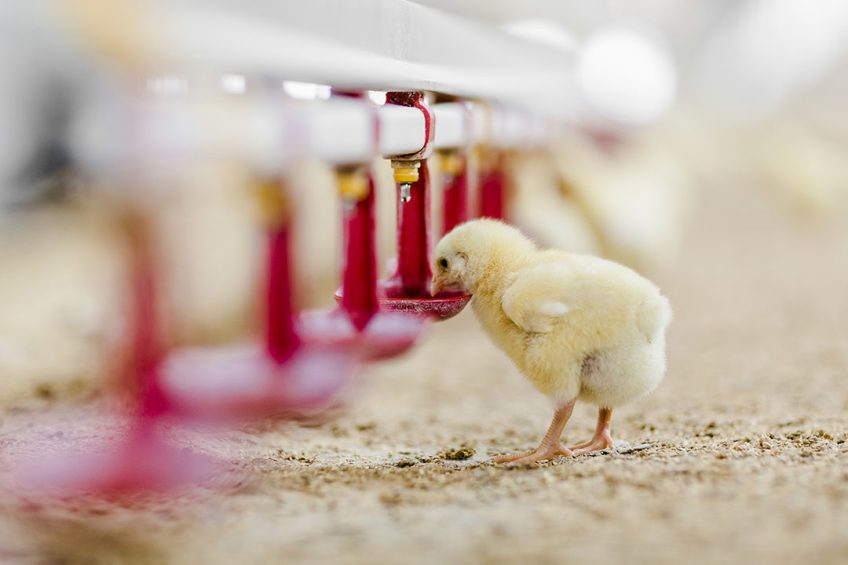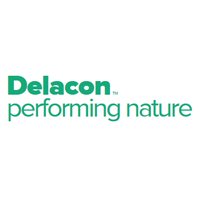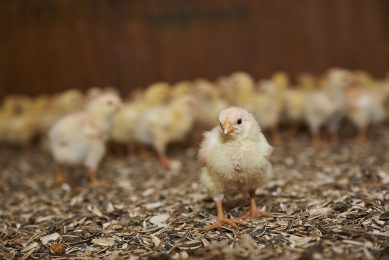Intestinal health with plants: Promising outlook for poultry

With the increasing pressure to reduce the use of in-feed antibiotics, coccidiostats have also come to the fore, as here, too, long-term resistance cannot be ruled out. Moreover, as happened with antibiotics in 2006, there is even talk of potential bans on the use.
Healthy birds with constant and high performance in breeding and fattening are of the utmost importance. A goal, which is mainly achieved through optimal utilisation of feed. Basic prerequisites for this is in turn are; optimal digestion and absorption processes.
In short: A healthy intestine.
Though, the intestinal health can quickly become unbalanced. The ecosystem described is strong in its ability to perform its tasks, but equally sensitive to disturbances. But what can disbalance the intestinal health?
Feared: coccidiosis
Coccidiosis is a serious disease and feared enemy in poultry barns, caused by unicellular protozoan parasites and transmitted by excrements. These unicellular organisms severely damage the internal organs of the bird, impairing the absorption of nutrients, hence growth. Infections spread rapidly, leading to high economic losses in modern animal husbandry. Global losses, including production losses, disease prevention and treatment costs, run up to more than about US$ 5 billion per year. Subclinical infections, accompanied by performance losses (i.e. reduced feed intake, poor feed efficiency) contribute in part to these economic effects.
Natural protection on the rise
Conventional prophylaxis methods including coccidiostats and anticoccidial drugs to prevent and control coccidiosis seem controversial meanwhile, as possible emergence of drug-resistant strains can´t be excluded. There is definitely a need for alternative solutions to defend poultry flocks from pathogens like Eimeria. In order to strengthen, stabilise and improve resilience of the intestine against protozoa, it requires strong protection – best, protection in a natural way.

The solution is simple and comes – once again – from mother nature herself: Phytogenics (plant based bio actives) are safe and effective weapons that are able to reduce the intestinal damage from coccidia, not only in a direct way but also indirectly – for a sustainable control of primary and secondary infections. Delacon, has enormous know how in selecting, combining and formulating plant-based compounds into effective solutions, tailored to challenges in livestock production, for instance improving the bird’s resilience against intestinal infections.
Synergisitc interaction
And it is precisely these well-formulated full phytogenic solutions that clearly stand out from the crowd. They do not only combine precious bio actives, such as flavonoids, essential oils, and saponins, much more it is the synergistic interaction of all ingredients that makes them go far beyond single substance products. Well-selected phytogenics have potential to support poultry gut health in challenging conditions.
The positive performance effects of phytogenic substances are illustrated in Figure 1. It shows the effects on growth performance up to 42 d. Due to improved resilience against intestinal infections by the phytogenic actives, infected birds showed improved weight gain (+8.3%), feed intake (+2.3%) and feed conversion ratio (-6.0%) compared to control (infected but non-treated groups).
Figure 1 – Effect of phytogenic substances on growth performance.
Phytogenic substances are not considered a full replacement for conventional coccidiosis prevention programmes but can help the bird in its defence against infections (e.g. in combination with a coccidiosis vaccination).
Conclusions
The urgent need to control avian intestinal diseases (i.e. coccidiosis) in a world with increasing pressure to reduce in-feed antibiotics, made alternatives like selected plants and their extracts, the centre of interest.
The use of well-formulated phytogenic substances represents a relevant strategy in facing challenges of modern poultry production. Even more important in times, where the call for AGP-free animal production and residue-free products is getting steadily louder.
 Beheer
Beheer



 WP Admin
WP Admin  Bewerk bericht
Bewerk bericht